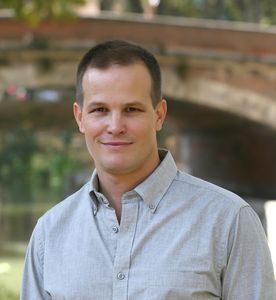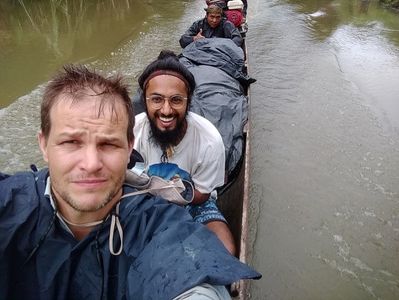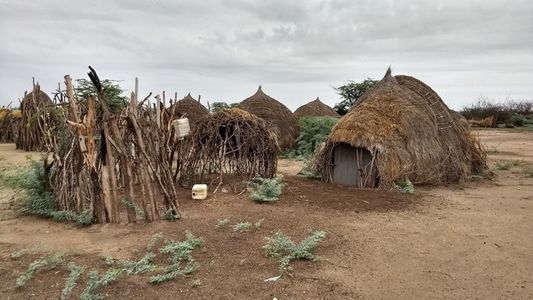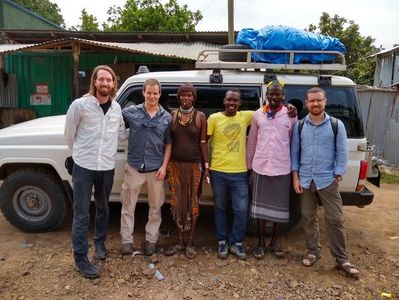Q&A with Prof. Luke Glowacki
 Luke Glowacki is an Assistant Professor in the Department of Anthropology. He studies the evolution of complex social behavior, including cooperation and war. He has done extensive fieldwork among nomadic pastoralists along the Ethiopian/South Sudanese border studying inter-ethnic violence.
Luke Glowacki is an Assistant Professor in the Department of Anthropology. He studies the evolution of complex social behavior, including cooperation and war. He has done extensive fieldwork among nomadic pastoralists along the Ethiopian/South Sudanese border studying inter-ethnic violence.
Q: Tell us about yourself.
A: This is my second year at BU after coming from Penn State where I was an assistant professor. I also spent a few years at the Institute for Advanced Study in Toulouse before then. Right now, I’m studying intergroup cooperation, when it may have become important in our species’ history, and the social and psychological mechanisms it requires.
Q: How did you get involved with that/what inspired this project?

A: The topic of warfare and intergroup conflict is enormous. We have well developed theory about why intergroup conflict evolves but we have much less insight into how intergroup cooperation and peace emerges. This gap is puzzling because intergroup cooperation is such an important part of our species’ success, ultimately enabling cumulative cultural evolution. I hope my work on this topic begins to answer some of these questions.
Q: You just received a $450k grant – what does that mean for your research?

A: Yes! The National Science Foundation awarded us a grant to study the formation of social relationships across distinct groups in Ethiopia. Our primary questions are about how positive relationships that cross salient group boundaries are created. What social, structural, or individual factors lead to their emergence? We will primarily use the tools of network science, but my research has a strong ethnographic component. It’s very hard to know the questions to ask, the types of data that are meaningful, and how to interpret them without ethnography.
Q: What is something fun/surprising/interesting about your research?

A: The fantastic collaborators. With global telecommunications, you can build your network not based on geographic proximity but on overlapping interests and synergy. As a result, my fantastic core collaborators are all over the world. This is one of the most important aspects of being a successful scientist—building a network of strong supportive colleagues for intellectual stimulation and feedback.
Q: Why anthropology? Why higher education?
 A: I love being an academic. Your job is to learn about the world and share your insights with others, especially students. This is an exhilarating responsibility and privilege. I’m interested in all things human so anthropology allows me to explore a wide range of topics without going too far outside my home discipline. If you are interested in humans, then anthropology is a diverse enough discipline to encompass your interests.
A: I love being an academic. Your job is to learn about the world and share your insights with others, especially students. This is an exhilarating responsibility and privilege. I’m interested in all things human so anthropology allows me to explore a wide range of topics without going too far outside my home discipline. If you are interested in humans, then anthropology is a diverse enough discipline to encompass your interests.
Q: What were some of the challenges along the way, and what were the most rewarding parts?

A: A large challenge every junior scholar faces is that the timeline to PhD is long with many twists and turns on the way. But working towards your PhD is amazing; society grants you 5-7 years to devote entirely yourself to studying one topic in depth. This is a remarkable social contract. In the day to day, it can be hard to see progress – most progress is incremental, but hard work and diligence ultimately pays off. The most rewarding part of the research process is when you’ve been thinking about a topic seriously and what you have been struggling to understand finally clicks. Then sharing the wonder of discovery with students—and seeing this wonder in them—is immensely inspiring.